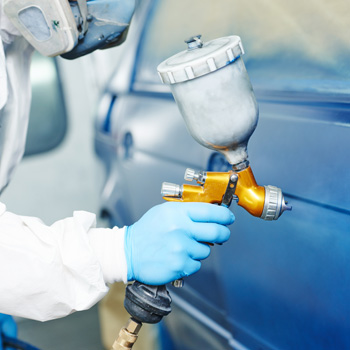 Over the past few years, there has been growing awareness about the risks associated with solvents—chemicals used to dissolve other substances and create solutions. As a result, companies like DaSilva’s have made significant efforts to reduce or completely eliminate the use of VOC-based paints in their operations.
Over the past few years, there has been growing awareness about the risks associated with solvents—chemicals used to dissolve other substances and create solutions. As a result, companies like DaSilva’s have made significant efforts to reduce or completely eliminate the use of VOC-based paints in their operations.
Solvents are found in a wide range of products, such as cleaning agents, adhesives, paint thinners, detergents, and furniture polishes. They are often listed on labels under names like toluene, xylene, acetone, or ethyl acetate. These substances help mix ingredients and then evaporate once the product is applied. However, their presence can pose serious health risks, especially when used frequently or in high concentrations.
While occasional exposure might not be too harmful, tasks like spray painting cars can lead to much higher levels of exposure. This increases the risk of both immediate and long-term health issues.
The Hidden Dangers of Solvents
Solvents, also known as volatile organic compounds (VOCs), don’t just evaporate—they release harmful toxins into the air. For workers regularly exposed to these chemicals, inhaling them can cause damage to soft tissues in the brain and nervous system, leading to symptoms like dizziness or confusion.
Over time, this damage can accumulate and lead to chronic toxic encephalopathy, which affects memory, concentration, and motor skills. Long-term exposure has also been linked to serious conditions such as liver and kidney disease, respiratory problems, and even cancer. In fact, recent studies from the Harvard School of Public Health show that repeated exposure to solvents can have lasting effects, with cognitive decline appearing decades later.
Common Sources of Exposure
Many everyday items contain solvents, including adhesives, epoxy, and asphalt. While most exposure happens through inhalation, skin contact or ingestion without proper protection can also be dangerous. The effects can vary depending on how often and how much someone is exposed.
- Short-Term Effects: These may include dizziness, nausea, headaches, rashes, or difficulty coordinating movements.
- Long-Term Effects: Repeated exposure could lead to more severe issues like vision loss, organ damage, heart irregularities, and an increased cancer risk, especially if the solvent is classified as a carcinogen.
Research from the Endocrine Disruption Exchange (TEDX) and the University of Colorado has also shown that even low-level, repeated exposure can disrupt the body's hormone system. This can affect fertility, increase the risk of premature birth, and lead to developmental issues in babies.
Environmental Impact
When solvents mix with nitrogen oxides in sunlight, they form ground-level ozone, a major component of smog. This can harm plants, animals, and even buildings. Although modern waste disposal methods now limit solvent release into the environment, many areas still suffer from contamination due to past practices.
For years, companies poured solvents into the ground, assuming they would simply evaporate. Instead, they seeped into the soil and groundwater, contaminating drinking water supplies. People can now be exposed through tap water, showers, or even public pools.
Additionally, solvents can migrate into building foundations and underground systems, causing long-term structural damage. They can also enter indoor spaces through a process called vapor intrusion, posing hidden risks to homeowners and workers alike.
To protect both people and the environment, DaSilva’s Auto Body is committed to using low-VOC, eco-friendly paints and properly disposing of all hazardous materials. By choosing green services, you’re not only safeguarding your health but also contributing to a cleaner planet. Contact our Naugatuck location today to learn more or schedule a service.
Metal Can Ends/Lid/Ring Production Line
Metal Can Ends/Lid/Ring Production Line,Solder Tin Cans Making Machine,Rectangle Can Making Machine,Metal Decorative Square Tin Can Making Machine
Zhejiang Golden Eagle Food Machinery Co.,Ltd. , https://www.goldeneaglecanmaking.com